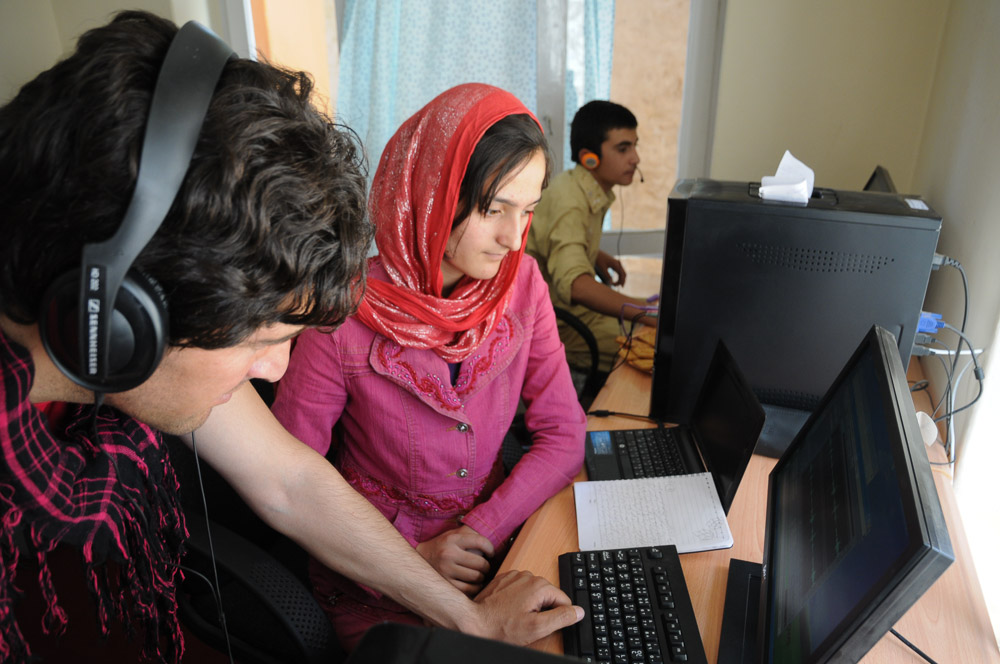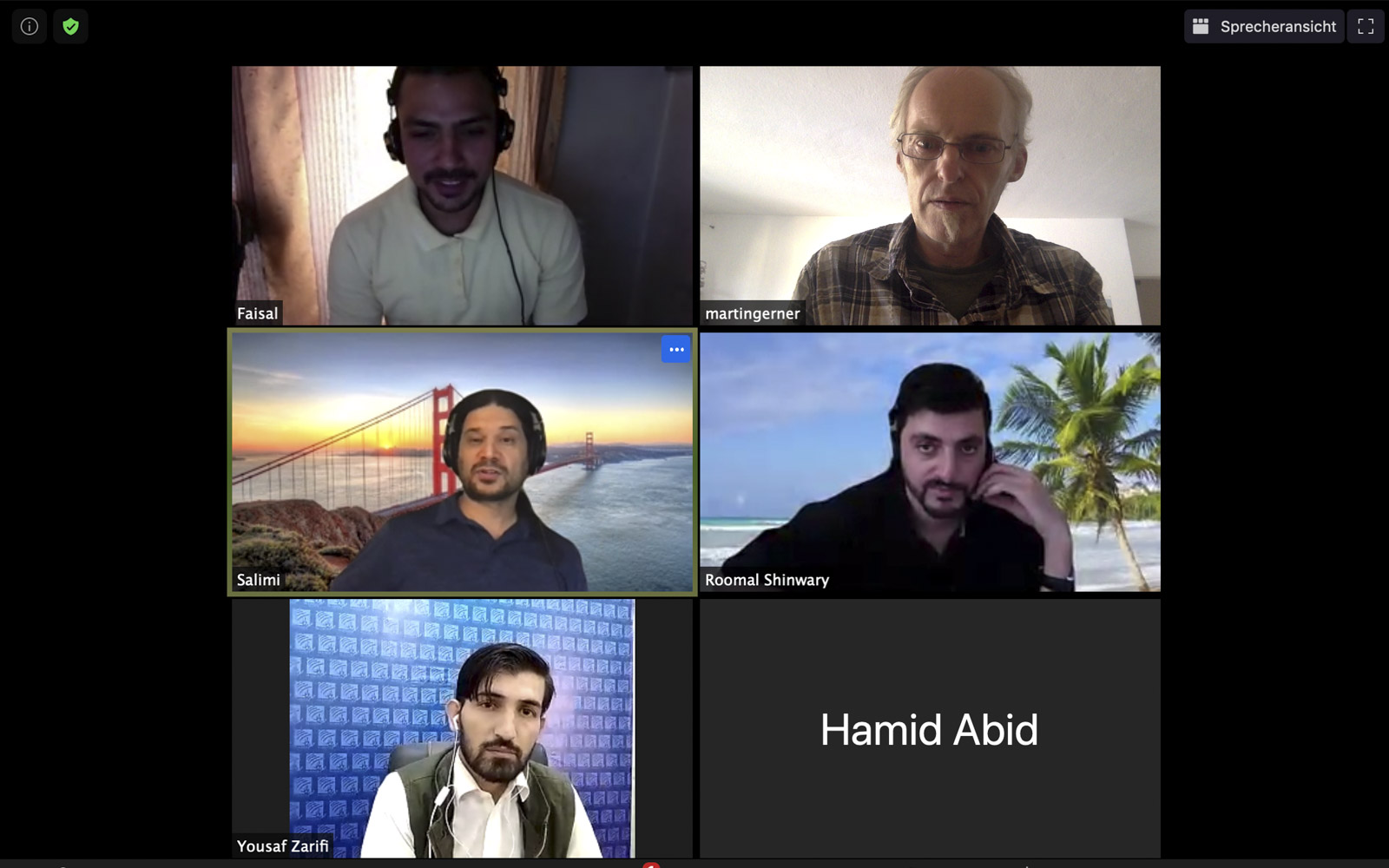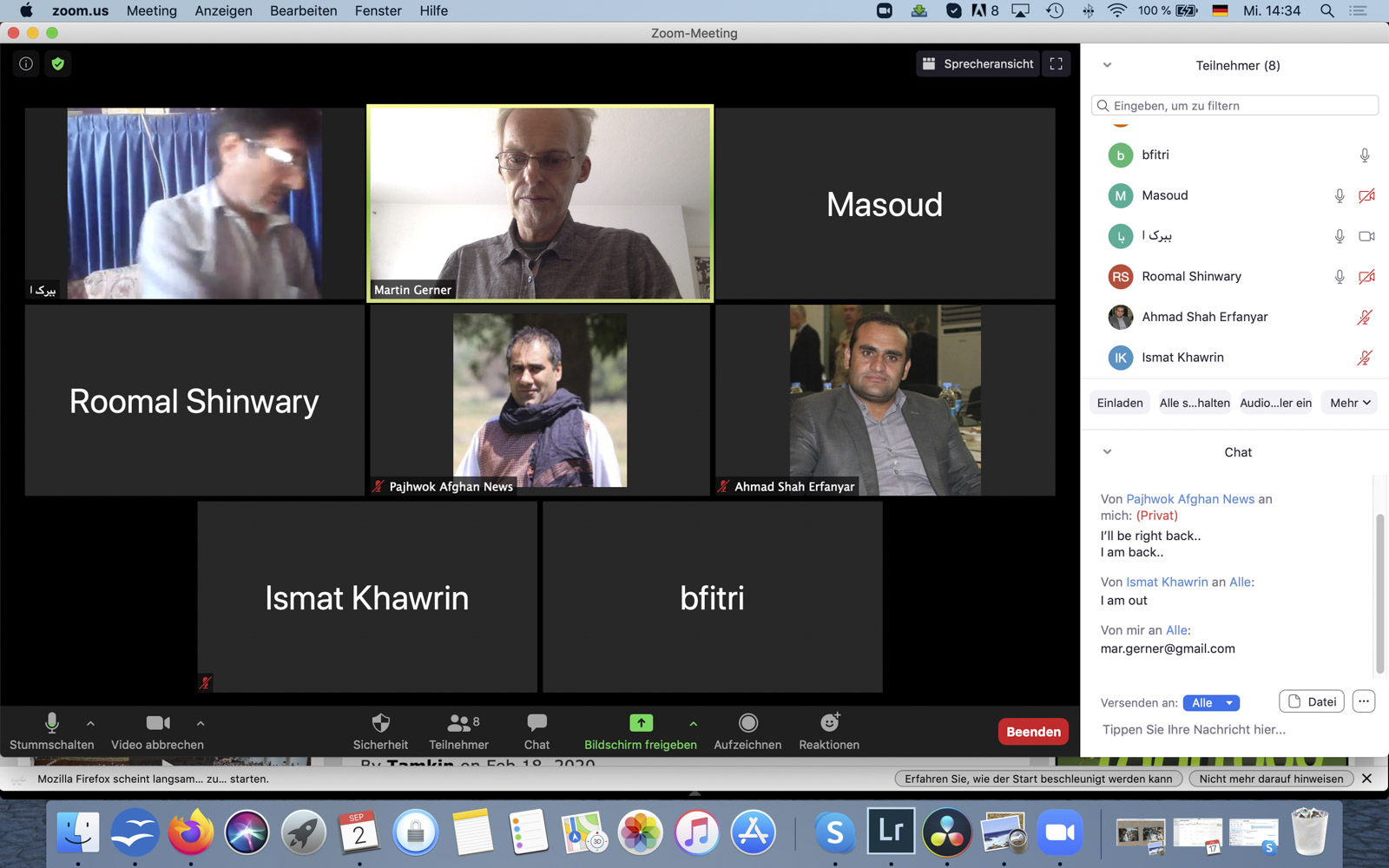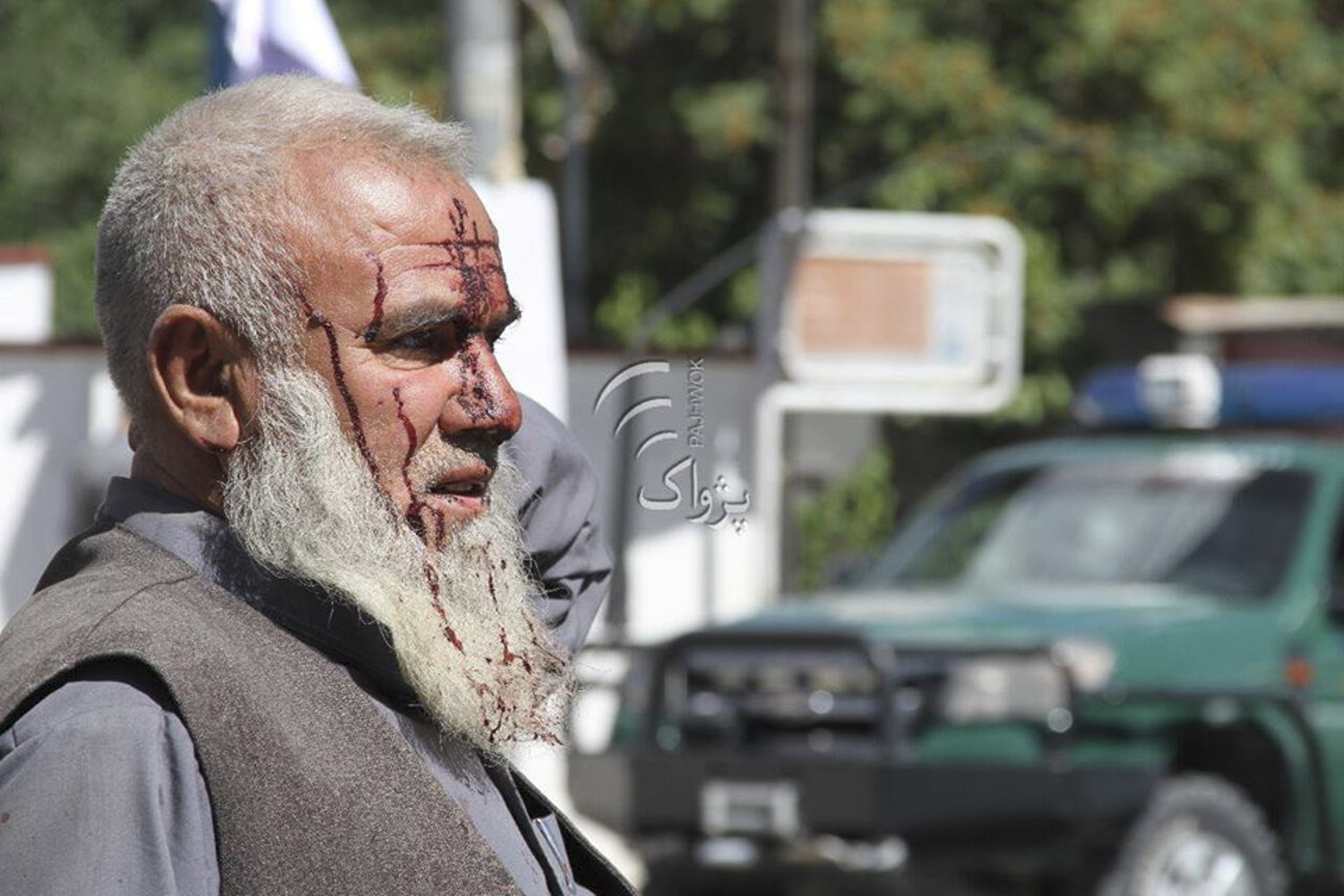Trainings in Conflict Areas

Media Trainings in Conflict Areas
for Freedom of Press and Speeach
A senior reporter, presenter and correspondent with Germany’s influential Deutschlandfunk, a Public Broadcaster and the equivalent to the British BBC Radio, I started my career as an internati0nal Media Trainer for freedom of press and freedom of speech after 2001 in Afghanistan, contributing my share for the built-up of new media landscapes in war-torn countries. Teachings and media trainings happen in cooperation with major media players on the ground, reknown international media NGOs or, as for lectures, in university faculties or with international media foundations.
Afghanistan has witnessed in the past months a high toll of journalists that died in the Afgahn war. The workshop takes place in a very difficult period for Afghan media, with reporters killed and freedom of press under heavy pressure. (see here) Though the Corona pandemic makes travel more difficult, my comittment to freedom of press in this part of Central Asia is ongoing.
My current teaching is with the German Konrad Adenauer Foundation (KAS) and with Pajhwok Afghan News (PAN) in Kabul, one of Afghanistan’s leading news agencies on improving PAN’s journalism standards and video production. Ths training was hold in autumn 2020 via zoom together with other academic colleagues from the field.
VIDEO AND PHOTOGRAPHY WORKSHOP.
BRANDING PAJHWOK’S YOUTUBE CHANNEL

Konrad Adenauer Foundation (KAS) has launched the call for a workshop for Pajhwok Afghan News (PAN) with the purpose to boost the quality of Pajhwok’s YouTube channel through enhanced capacities in video journalism, filming, editing and promotion. This comes at a moment where creating income through its YouTube channel has become an additional feature and purpose of PAN.
Pajhwok and KAS with the training have comitted themselves to a fresh eye from two long time professionals, both acquainted with the Afghan and the international media and media marketing systems. The trainers have assessed where PAN currently stands in the quest for new audiences and quality output for its videos (‚branding‘). Pajhowk invests in additional efforts for its Youtube channel with the hope that as a powerful platform and whit a leveraged strategy, the promoation of its videos can be turned into a good source of additional sales. Pajhwok, ideally, has called for the following goals: increase brand awareness, improve reputation, increase marketing leads, attract advertisement and increase overall income.

Workshop content:
In the course of the training different contents have been addressed for Pajhwok’s video and photogaphic production as previously defined: creative direction, script writing, journalistic and cinematographic storytelling techniques, dramaturgy, camera settings and techniques, shooting skills, lightning, cinematography, direction, edit and subtitle animation. Pajhwok’s visual service department as well as its reporters and correspondents in the provinces
– both closely linked in their everyday work – were the groups the workshop focuses on.

My Trainings Record in Conflict Areas
I have spent more than a decade in Afghanistan and the central Asian region to help and develop independent Afghan media.
My journalism trainings in conflict areas include working in the captials as well as in remote provinces. I work based on curricula which follow the needs and agendas of local reporters and partner organisations in the field. The teaching follows international standards laid down by organisations such as CIJ, RSF, IFJ, ICFJ. The teaching concentrates on basics of journalism, journalism ethics and safety as well as on investiative journalism under circumstances of conflict. I work with a number of national and international media organisations with the aim of creating a basis for independent and sustainable free media as a driving force for societies in change.
As for my trainings on documentary filmmaking in conflict, I am working to reshape the identity of Afghan filmmaking as part of a comprehensive inter-cultural approach that looks at narratives and story-telling beyond projects that are usually funded from abroad lacking an authentic and critical approach.
The following is a non-exhaustive list of some of my teachings in Afghanistan and Germany in the last years:
Mediothek, Documentary Film Script and Film Theory
Afghanistan 2012
FES-Journalistenakademie, Alles Taliban?- Afghanistan und unser Islam-Bild
Bonn/Germany 2011
Institute for War and Peace Reporting, Radio and Print Journalism, Journalism Ethics & Safety
Afghanistan 2011
Mobile Mini Circus Afganistan, Youth Radio and Mini Drama Training & Education Project
Afghanistan 2009
Radio Salam Wantandar, Internews, Mentor of the National News Programme
Afghanistan 2006
Help e.V., Built-up and Management of a new Media and Research Unit
Afghanistan 2008
University of Herat, Department of Literature & Journalism, Journalism lectures for 1st ot 4th year students
Afghanistan 2008
Agha Khan Foundation, Media & Case Study Training
Afghanistan 2007
Free and Fair Elections Foundation of Afghanistan, (with the Foundation for Civil Culture and Society)
Media Training for Election Observers, Afghanistan 2004
Aina, Trainer of the Aina Radio Programs and Mentor for Radio Voice of Afghan Women
Afghanistan 2004
Radio Television Afghanistan, Radio Journalism & Journalism Ethics, Kabul & Kandahar
Afghanistan 2004
References
The following is a non-exhaustive list of partners I work with
Amnesty International (here)
Reporters without Borders / Reporter ohne Grenzen
p24 Platform for Independent Journalism
The Killid Media Group
NAI Supporting Open Media in Afghanistan
Pajhwok Afghan News
Doha Center for Independent Journalism
Open Society Institute OSI
Deutsche Welle Academy
FES-Journalismakademie
Medien Akademie Ruhr
AG Dokumentarfilm
VG Bild-Kunst
